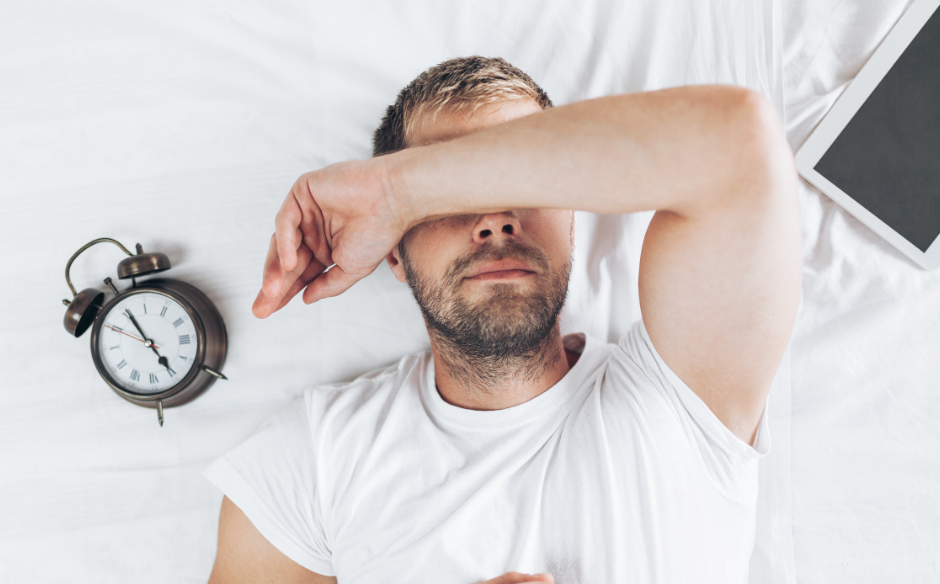Many people begin their weight loss journey with the calorie deficit and exercise no weight loss. It is expected that regular exercise and consuming less fat than burned will result in weight loss. However, an upsetting reality for many is that with their regular activity and calorie deficit, they are unable to lose weight. If any of this seems like you, don't worry—you're not alone. Gaining understanding of the different causes behind your lack of achievement can help you make the essential modifications and eventually achieve success in your physical pursuits.
This article will go over the potential reasons for your inactivity-induced caloric deficit, how to fix it, and why you might not be seeing the desired results from your weight loss efforts.
8 Calorie Deficit And Exercise No Weight Loss
1. Miscalculating Your Calorie Deficit
Perhaps of the most predominant clarification why individuals who practice and in a shortfall of calories probably won't lose fat is that they are misestimating the veritable calorie deficiency. Regardless of whether you accept you are consuming more energy than you are consuming, the sums may not make any sense. We should dissect this:
Underrating Calorie Consume during Activity: Practicing habitually drives one to misjudge the quantity of calories consumed. Numerous wellness trackers and rec centre gear have an inclination for misrepresenting the quantity of calories consumed during exercise. For instance, a 30-minute run could consume 300 energy, however you could think it consumes 500. This difference could make up for your absence of assets.
Underrating Food Admission: Then again, it's possible that you're not checking each calorie you eat. Fixings, little scaled down tidbits, and exclusive cooking oils rapidly aggregate. On the off chance that you don't monitor everything, you could unexpectedly surpass your calorie targets in any event, when you accept you're keeping a calorie shortfall.
You might guarantee that you are not underrating or limiting vital numbers by keeping an exact record of your food utilization and active work. This will help you in following the consequences of your movement and calorie shortage also.
2. Not Accounting for Muscle Gain

You are very likely to be gaining muscle if you exercise regularly and keep a calorie deficit, particularly while doing heavy lifting. The scale might not reflect an alteration in your body balance as quickly as it might if you gained more muscle and lost less fat since muscle has more weight than fat.
Instead of depending just on the scale for evaluating your progress, think about using other techniques:
-
Measurements of the arms, thighs, waist, and hips
-
Body fat percentage as measured with callipers or other instruments
-
The fit of your garments
Even while it can be depressing to see no weight reduction on the scale, your body may still be changing in a way that is beneficial to you. If you don't see an instant change in the figures, don't give up. Even though the scale isn't reflecting it, your dedication to exercise and calorie deficit no weight loss restriction may be paying off in the shape of improved muscle tone and fat loss.
3. Water Retention
Another component that might jumble the results of your calorie deficit and exercise no weight loss is water maintenance. A large number of variables can prompt water maintenance, for example,
-
Expanded sodium consumption: Polishing off a great deal of salt could make your body hold more water.
-
Hormonal varieties: Water maintenance during period can cause weight changes, especially in ladies.
-
Fix of muscles: When you work out, especially assuming it's new or extreme for you, your muscles support micro tears that cause irritation and briefly hold water.
On the off chance that you've been practicing and keeping a calorie deficiency yet haven't lost any weight, do whatever it takes not to let brief swings demotivate you. It's conceivable that your body is holding overabundance water, which would make sense of why it appears as though nothing is working. Rather than stressing over everyday varieties, screen your improvement throughout a more extended time span (like a little while or months).
4. Metabolic Adaptation
A less popular clarification for keeping a calorie deficiency and practicing however not getting thinner is a peculiarity known as metabolic variation. Your body changes by consuming less calories when very still when you consistently consume less calories. This is a method for surviving that developed to hold you back from starving.
Along these lines, while you're in a supported calorie shortfall, your digestion might dial back, and that implies the shortage you previously created isn't quite as perfect as you at first accepted. To impede metabolic transformation:
Consolidate refeed days where you raise your calorie consumption fairly for a brief period.
To keep up with and gain muscle, focus on strength preparing as it builds your digestion.
You can stay away from or beat metabolic transformation and continue to get more fit because of your calorie deficit and exercise no weight loss by carrying out these changes.
5. Stress and Sleep

Indeed, even within the sight of activity and calorie limitation, two additional significant variables that block weight reduction are pressure and lack of sleep. Both of these two circumstances might cause cortisol levels to build, which might impede weight decrease.
Stress: Delayed pressure can increment cortisol amalgamation, which supports fat capacity, particularly in the midsection. This could be the reason for your absence of progress on the scale even with your steady work-out and smart dieting propensities.
Rest: Lacking rest can upset the chemicals that control hunger and completion, prompting an expansion in desires and overindulgence in food. You can find it harder to keep up with your drive to exercise and calorie deficit no weight loss on unfortunate dietary choices.
Read Also: Apple Cider Vinegar For Detox Drink
6. Not Enough Protein
In the event that you're practicing and in a calorie shortfall however not shedding pounds, one more significant thing to ponder is whether you're getting sufficient protein in your eating regimen. Protein causes you to feel fuller for longer timeframes and is fundamental for protecting bulk during a calorie shortfall.
Your body could separate muscle tissue as opposed to fat for energy in the event that you don't get sufficient protein. This might bring about a more slow digestion, decreased bulk, and no weight decrease. Ensure each dinner incorporates a sufficient measure of lean protein sources, like fish, poultry, tofu, or lentils.
7. Not Varying Your Exercise Routine
Your body could have become accustomed to the everyday practice in the event that you've been practicing similarly for quite a while. This can bring about a drop in how much calories you consume while working out, which makes it more challenging to keep a calorie shortfall.
Change up the manner in which you work out: Consider stirring up your exercise routine schedules by including elective cardio or strength preparing or stop and go aerobic exercise (HIIT).
Moderate over-burden: To slowly stretch your muscles during strength preparing, focus on raising the weight or reps.
This can uphold your weight reduction endeavours by keeping your body speculating guaranteeing that you're actually consuming calories successfully.
8. Overeating After Exercise

After a demanding exercise, you might feel eager, driving you to gorge and possibly balance your calorie shortfall. Many individuals who trust they've "acquired" more food subsequent to resolving battle with this. However crucial as post-exercise nourishment seems to be, you additionally should know about the number of calories that you're consuming to ensure you don't inadvertently turn around the calorie deficiency you endeavoured to accomplish.
To Prevent This, Think About
Meal preparation in advance helps prevent calorie-dense, impulsive snacking after exercise.
Concentrating on meals rich in fibre and protein that are abundant in nutrients to help you feel full without consuming too many calories.
In conclusion, what should you do if you exercise and have a calorie deficit but aren't losing weight?
Don't give up if you've been exercising and maintaining a calorie deficit but haven't lost weight. Weight reduction is a multifaceted process, and it's possible to have plateaus or sluggish progress along the way.
To Get Beyond The Obstacles
-
Take a second look at your activity production and calorie consumption to make sure you're recording them correctly.
-
Examine additional variables, like stress, sleep, and water retention that may be impacting your weight loss.
-
Change up your workout routine while making sure that you get sufficient protein in your diet to keep up muscle mass.
-
Stay calm and concentrate on greater the future than on immediate changes.
You'll be in an improved position to meet challenges and get the results you've been aiming for if you address these possible problems. Recall that weight loss requires time and work, but it is entirely possible with dedication and smart getting ready.
FAQ’s: Calorie Deficit And Exercise No Weight Loss
Why, even with exercise and a calorie deficit, am I not losing weight?
Typical Reasons Why You Can't Lose Weight When Eating Less. A frequent cause of weight loss failure is imprecise calorie counting. It's simple to overestimate calories burned or underestimate the amount of calories consumed. The amount of hidden calories in drinks, sauces, and condiments can build up rapidly.
Can you lose weight without exercising and merely by cutting calories?
It is feasible to lose weight without exercising because you might hypothetically establish a calorie deficit by merely cutting back on your food intake. Nevertheless, losing weight without exercise can be difficult. It's difficult to achieve the required calorie deficit by calorie reduction alone.
Why don't my diet and exercise help me lose weight?
Your weight isn't necessarily the best indicator of your exercise and calorie deficit no weight loss level or overall health. For instance, you can see that the scale remains the same or increases since you might be growing muscle in addition to shedding fat.